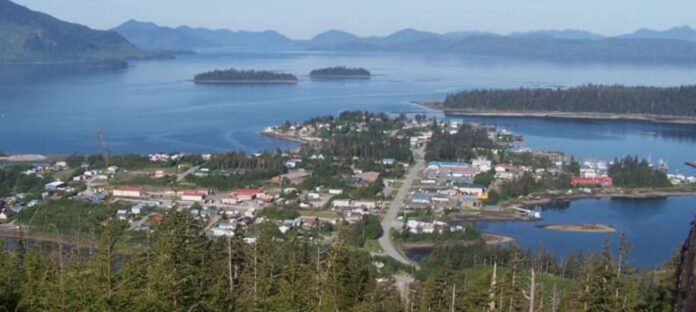The city council in Craig is considering an ordinance that would symbolically declare the community to be “Indian Country,” a term with specific legal meaning under federal law. While the ordinance is still under discussion, it’s on the July 17 agenda and has already drawn attention for its potentially far-reaching legal and political ramifications.
Under federal law, “Indian Country” is defined as land within Indian reservations, dependent Indian communities, or Indian allotments where title has not been extinguished.
In Alaska, this designation is particularly complex due to the Alaska Native Claims Settlement Act of 1971, which largely eliminated reservation lands in favor of transferring property to Native-owned corporations.
The 1998 U.S. Supreme Court decision in Alaska v. Native Village of Venetie reinforced this framework, ruling that most lands conveyed under ANCSA do not qualify as Indian Country unless specifically held in federal trust.
Craig is home to the federally recognized Craig Tribal Association, which exercises certain sovereign powers, including limited regulatory authority on tribal matters. However, the city council, operating as a municipal government under Alaska state law, does not have the authority to legally establish “Indian Country” status. That designation can only be made by Congress or the US Department of the Interior, typically through a formal land-into-trust process.
If passed, the ordinance would likely serve as a symbolic assertion of tribal identity and sovereignty, rather than a legally enforceable change. Legal experts note that such a declaration could face challenges in court, especially if interpreted as an attempt to extend tribal jurisdiction over non-Native residents or private property.
The State of Alaska has historically opposed expansions of tribal authority that appear to conflict with the structure established under ANCSA. A recent example includes the state’s legal challenge to a 2023 federal decision to take land into trust for a tribe in Juneau, a move that created Alaska’s second officially recognized Indian Country land area after the Annette Island Reserve. The state has also intervened in an Indian Country case involving a casino on a small parcel of land in Eklutna.
Should the tribe itself wish to pursue formal recognition of land as Indian Country, it would need to submit a land-into-trust application to the DOI. While a 2016 court ruling reinstated the eligibility of Alaska tribes to petition for trust land status, each request undergoes extensive review and is subject to objections from state authorities or private interests.
The proposed ordinance may spark public debate within the Craig community, which includes both Native and non-Native residents. While some may view it as a meaningful affirmation of tribal sovereignty, others may raise concerns about legal uncertainty, potential shifts in governance, or impacts on property rights.
Craig, on Prince of Wales Island, has a population of about 1,036, with about 164 of those residents being Alaska native.
Ultimately, any substantive change in Craig’s legal status as Indian Country would depend not on local ordinance, but on federal action.
